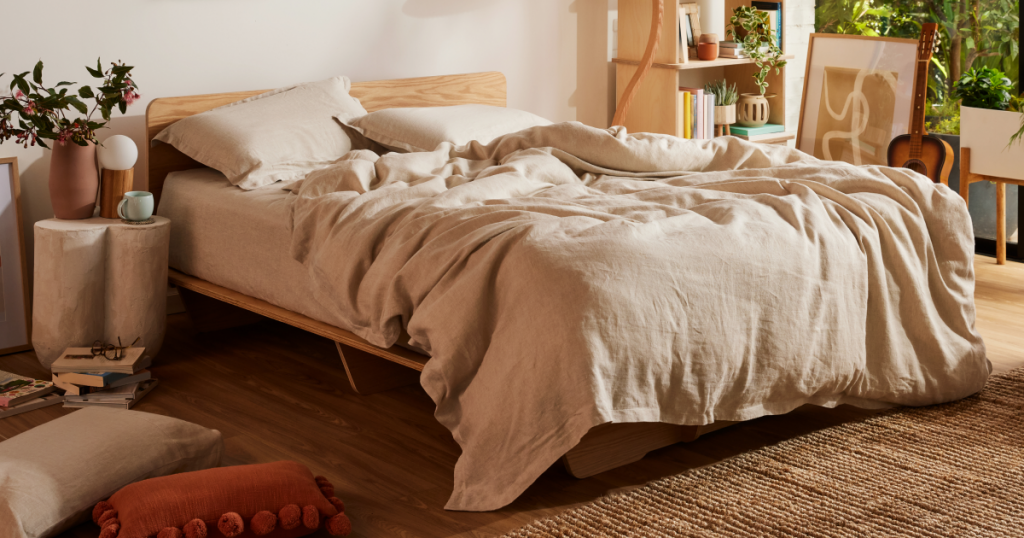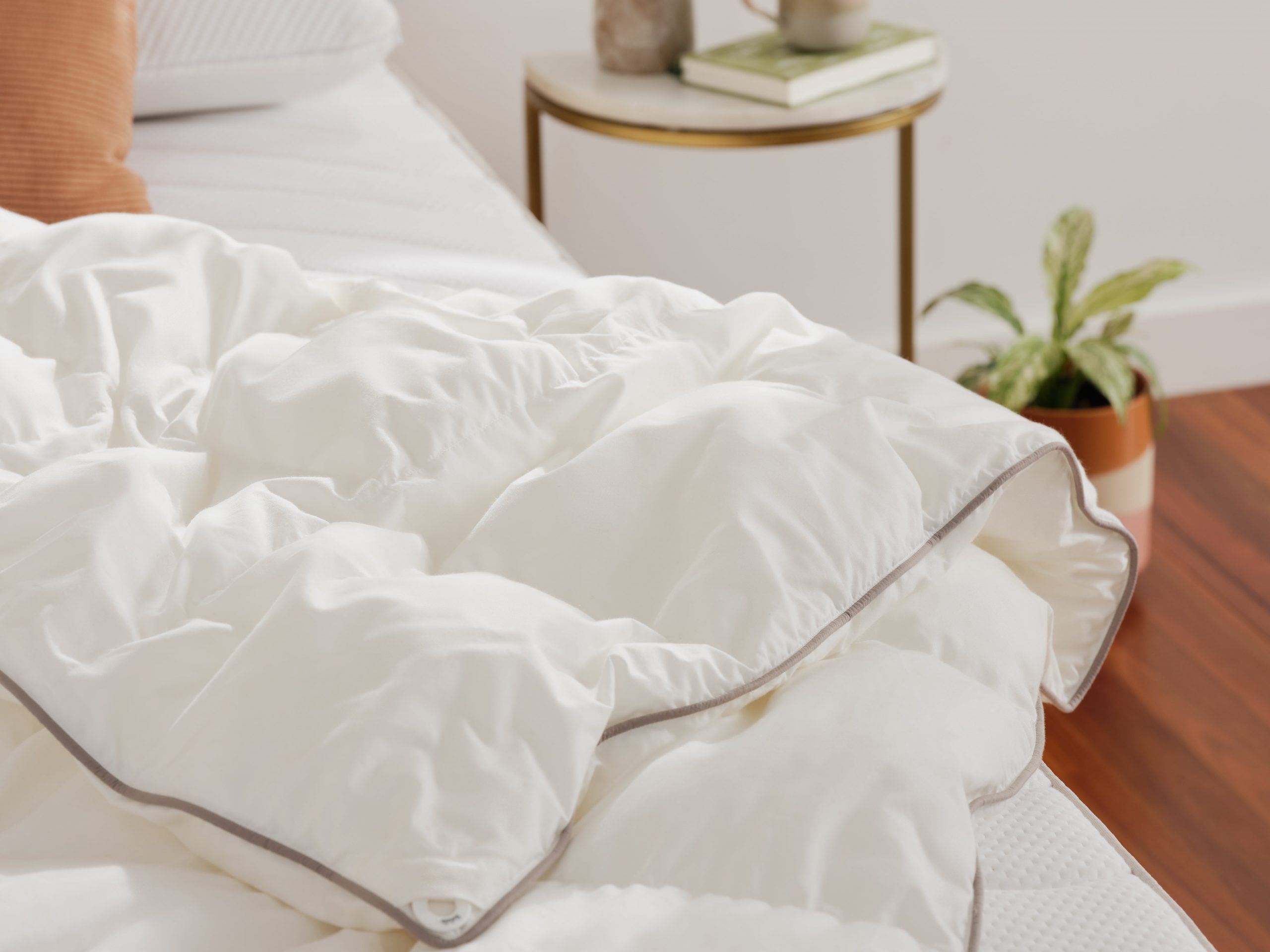You know that incredible fresh sheets feeling? The one where you slide into a clean bed after a long day.
Let’s face it—we all crave that feeling.
But the problem is, unless you live in a hotel, in order to achieve that bliss you have to do all the changing and washing up the sheets by yourself. And who has time for that? The audacity…
But think about it. You spend one third of your life in your bed and in such close proximity to your bed sheets. That’s more time than you spend wearing your favourite underwear.
So what’s the recommended frequency of sheet changing?
Is it okay to change your bed sheets once a month?
While your specific sheet changing habits might vary a little bit depending on your lifestyle, your body, and your preferences, most experts agree you should change your sheets every week or every two weeks.
If you want to compare how your sheet changing habits compare to that of the rest of the population, according to one study done in Britain, 55% of people wash their sheets every week, 21% do it every one or two months, 3% change their sheets every 6 months, and 3% do it only once a year.

What happens if you don’t change your sheets?
For those less frequent washers, you may be asking;
“What’s so bad about waiting to change my sheets?”
“It’s not like they smell, and they don’t look dirty, right?
“I don’t have any allergies or pets. What’s the harm in leaving it for a couple of months?
Well, we’ve got news for you—allergy-free, daily-showering, child/pet-free, single people! Regardless of the caveats, you still need to change your sheets pretty regularly.
An average person sheds about 500 million skin cells PER DAY.
They also produce around 100L of sweat per year. It is safe to say that many of these end up in your bed, along with pet dander (if you have pets), pollen and dirt that you pick up every day.
Then there’s dust mites. These like guys love household dust, the main component of dust is shed skin flakes.
Areas around the home that are heavily used, such as beds and upholstered furniture, will have much higher mite populations. Dust mites can trigger respiratory or dermatological problems including asthma and eczema.
According to Philip Tierno, a microbiologist from New York University who spoke to Business Insider, daily close contact with this build up will have detrimental effects on your health.
“Even if you don’t have allergies per se, you can have an allergic response,” he says.

Oh sheet…!
While your specific sheet changing habits might vary a little bit depending on your lifestyle, your body,
So go ahead, take a break from scrolling and go change your sheets. Your body and your lungs will thank you for that. The creepy crawlies won’t.
We recommend taking a squiz at our Organic Cotton, Le Linen sheets or TENCEL sheets. Yup, that’s a total self-horn-toot.



